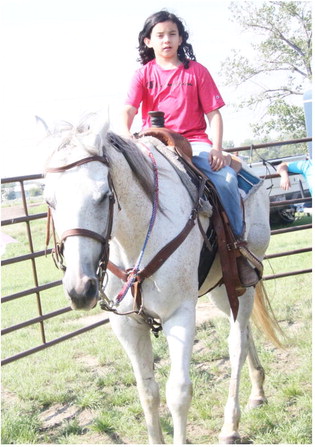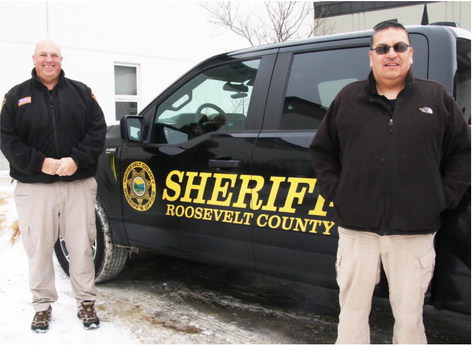Horses To Help With Recovery Efforts


Equine Therapy
The path to recovery may very well be on a horse for some individuals. That’s what Fort Peck Reservation officials are aiming for as they hope to assist residents in their strive for sobriety.
The Fort Peck Tribes recently purchased land to be used by the Spotted Bull Resource and Recovery Center for equine-assisted services training and equine-assisted wellness training. Spotted Bull will pay the lease on the property.
Officials have found that a relationship with a horse can create many benefits for individuals facing challenges.
“We use the horse as a tool to help with the recovery,” Carrie Manning, project coordinator at Spotted Bull, said. “You can tell the horse anything and everything.”
Although there’s no exact timetable of when the program will start, a business plan has been worked on and grant money will be applied to assist the project. Manning said some people have offered to donate horses. Saddles and boots have been donated in the past.
“We’re going to eventually build an indoor arena. We’re doing baby steps,” Manning said. “The horses will heal your heart. We’re trying to reconnect people to our horse.”
Staff members have completed equine-assisted wellness instruction through the Rocky Mountain Tribal Leaders Council in Billings.
“Now as clinicians, we can start seeing clients to help with their recovery,” Manning explained. “We will use the horses to be a healing tool for alcohol and drug addiction and recovery.”
The name of Fort Peck’s project is Ta Sunka Ho Waste, which translates to “Good Horse Voice.” Local artist Nakoa HeavyRunner wrote a theme song for the project. Lyrics include “Horse nations take courage. People are depending on you. We are Ta Sunka Ho Waste.”
The youth program called Creator’s Game continues to be a popular event in the area. Manning explained that program started in 2015 and had week-long camps for youth across the reservation. The instruction included various stations.
“They were all cultural based. One station was the horses,” Manning said.
At the end of each year’s programs, evaluations were received from the students. Each year, the favorite station involved the horses.
Starting in 2021, the decision was made for the horsemanship clinics to be held in different communities. They found that having the clinics on the Thursdays before the community’s powwows was well received.
“Some of the youth follow us from community to community because they want more on our horses,” Manning said. “It helps with the emotions and even their social skills.”
She noted people of all ages can benefit during time with horses. “The horse can feel what we are feeling,” Manning added. “You still are building trust.”


